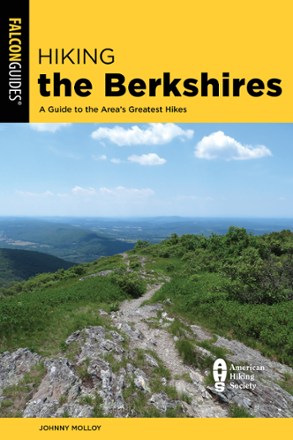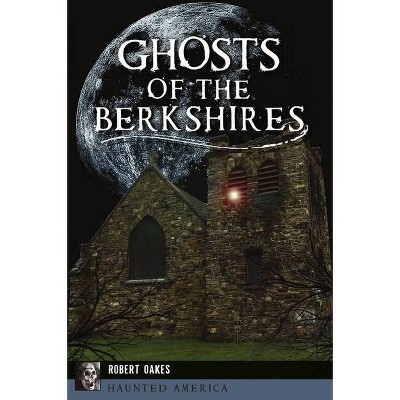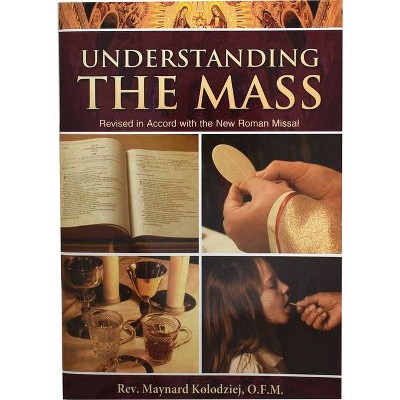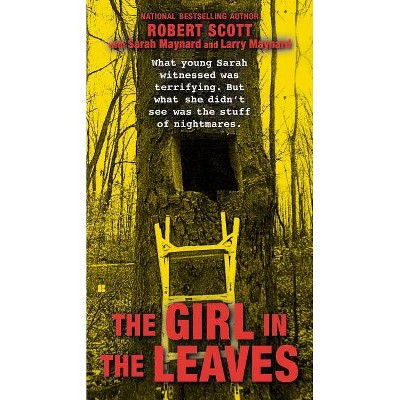The Gritty Berkshires - by Maynard Seider (Paperback)
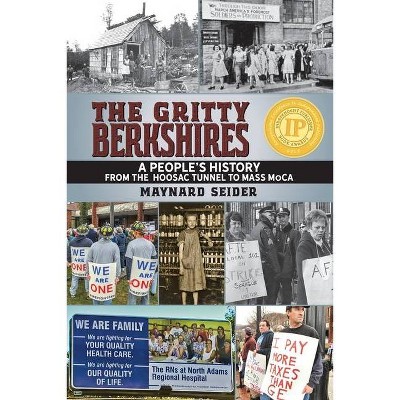
Similar Products
Products of same category from the store
AllProduct info
<p/><br></br><p><b> About the Book </b></p></br></br>For generations of working-class families who have lived in Massachusetts' northern Berkshires, reality looks like Rust Belt America. Maynard Seider, an activist sociologist who has taught and researched in the area for more than three decades, places the history of the North Berkshire region in the context of U.S. and global history.<p/><br></br><p><b> Book Synopsis </b></p></br></br><p>As <em>The Gritty Berkshires </em>makes clear, Massachusetts' westernmost county is not just art museums, music festivals and beautiful scenery. For generations of working class families who have lived in the northern part of this county, their reality looks more like Rust Belt America. </p><p>Maynard Seider, an activist sociologist who has taught and researched in the area for more than three decades, places the history of the North Berkshire region in the context of U.S. and global history. Through the use of oral histories, union archives, newspaper accounts and participant observation, the author focuses on the 1,000 men who built the nation's longest railroad tunnel, the thousands of men and women who worked in its textile mills and electronics factories and who struck, built worker co-ops, and community coalitions to improve their daily lives.</p><p>In this history, we learn how the Berkshires offer insight into so many crucial aspects of the American experience. Moving from the early 1800s to the present, Seider weaves a narrative that details the area's vibrant immigrant history, slavery's role in its textile industry, the battle for national unions and the ideological struggles with corporate elites over who best speaks for the community. Enriched by dozens of photographs, these stories focus on the voices of ordinary people as they often do extraordinary things.</p><p>Seider concludes his book by considering the question of "What's next?" through a case study of the Massachusetts Museum of Contemporary Art (MASS MoCA). These brick buildings which housed generations of blue and white collar workers until 1986 now attract tourists to the country's largest contemporary art collection. Yet the unanswered question remains, can a tourist-service economy provide a meaningful and economically sustainable life for its residents? <em>The Gritty Berkshires' </em> last section deals with this question both nationally and locally, exploring diverse responses amidst the nation's growing inequality, militarism and cutbacks in social services. </p><p> </p><p/><br></br><p><b> Review Quotes </b></p></br></br><br><p>"<em>The Gritty Berkshires </em>is a truly gritty history--highlighting the community's life and struggles from the ground up, and refusing to romanticize either the past or the present. From North Berkshire's roots in the 19th century to contemporary struggles around disinvestment, this book paints a complex portrait of those who really built the area, and what neglect and ignorance of that history means to all of us. We come to appreciate both the militancy and resilience of the workers, and the all-too-frequent denial of reality on the part of the powerful. <em>The Gritty Berkshires </em>offers the best of local history, rich with photos and personal stories, yet located within a larger national context."</p><p>- Martha Ackelsberg, William R. Kenan Jr., Professor of Government and the Study of Women and Gender, emerita, Smith College</p><p>"Draw a line a few degrees east of north from New York City and then another a few degrees north of west from Boston. The lines intersect in the northern Berkshires, where high culture and big money go out to play. And now, the rest of the story: the tales of the miners who dug a nearly five-mile-long tunnel through the Hoosac Mountain that made North Adams a transit hub for its 19th-century textile mills and shoe factories. As well, Maynard Seider tells the stories of the electronics workers who made the area a hotbed of mid 20th-century industrial technology. This is social history from the bottom up and a cautionary tale about economic development schemes . . . . MASS MoCA . . . may be a nice amenity, but the costs of deindustrialization are not so easy to wish away. Maynard Seider has written clearly, and documented fully, the story of the Berkshires that lies behind the white tablecloths of the lovely inns so prized by metropolitan sophisticates."</p><p>- Robert J.S. Ross, PhD, Research Professor of Sociology, Clark University; President, Sweatfree Purchasing Consortium; and author, <em>Slaves to Fashion: Poverty and Abuse in the New Sweatshops </em></p><br>
Price History
Price Archive shows prices from various stores, lets you see history and find the cheapest. There is no actual sale on the website. For all support, inquiry and suggestion messages communication@pricearchive.us
